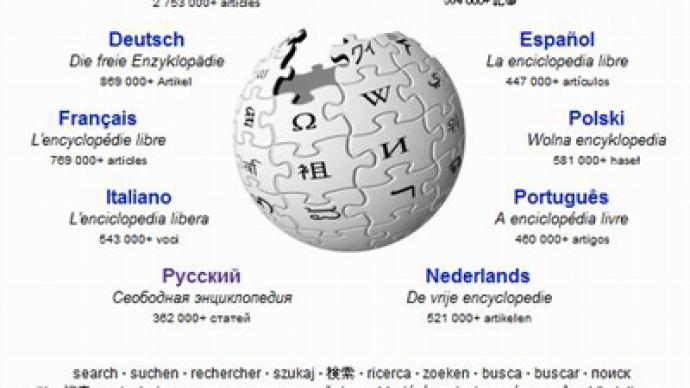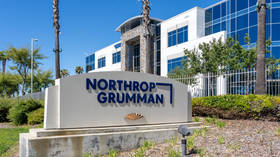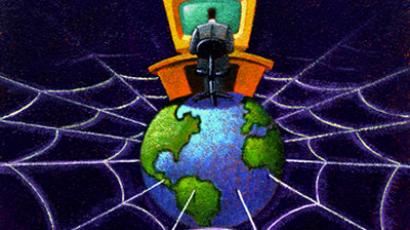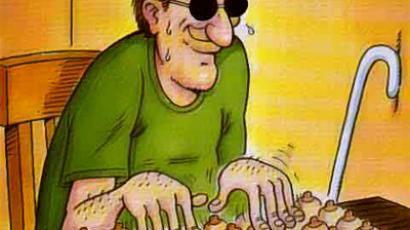Info no go: Wikipedia threatens strike over US piracy bill

Wikipedia may temporarily blank out its pages in self-sacrifice to draw attention to the controversial Stop Online Piracy Act. While the bill aims to protect copyrighted material, critics fear corporate manipulation could lead to greater censorship.
The US lawmakers behind the Stop Online Piracy Act (SOPA) say it would deal a blow to online pirates and producers of counterfeit brand products like designer fashion items or medicines.The bill is intended to crack down on websites operating outside of the United States. If passed, the legislation would allow the US government to shut down any site illegally hosting copyrighted content.However, not everyone supports the move. Wikipedia is the latest to join internet industry giants in the fight to stop the bill from being pushed through the Senate.While there are legitimate reasons behind showbiz’s drive in favor of SOPA – the industry is losing millions of dollars in revenue – some feel the legislation is overkill on internet piracyInternet companies, the Consumer Electronics Association and others have argued that the measure goes too far and the wording is too ambiguous.In reality, the real use of the bill could be much wider. If approved, SOPA will enable individuals or organizations claiming copyright to effectively block any website they suspect of infringing their rights. No court decision would be necessary, and third parties would be granted immunity from any reprisals resulting from their voluntary action against the alleged offenders.Consequently, popular sites like Wikipedia would be responsible for the material that is uploaded onto their site.Fearing that a medium based on the free sharing of information could be targeted, Wikipedia has chosen to fight back with a highly symbolic act.The “self-censorship” idea came to Wikipedia founder Jimmy Wales after Italian Wikipedia blanked out its site a few months ago in an effort to oppose a law in the country which would infringe on their editorial independence.“The Italian Parliament backed down immediately,” Wales writes. “As Wikipedians may or may not be aware, a much worse law going under the misleading title of ‘Stop Online Piracy Act’ is working its way through [the Senate] on a bit of a fast track.”However, Wales is not quick to jump into action without consultation and approval from the site’s users and editors. The online information straw poll has been posted online so everyone can have their say before Wales makes a decision.
A ‘grave threat’…
The strongest lobbyist for SOPA is the US entertainment industry, which wants the government to act against what it labels “digital theft”.Creative America, an organization fighting against online piracy is the biggest advocate for SOPA. In this fight Creative America is backed by an unprecedented coalition of major entertainment unions, guilds, studios and networks.The organization warns of the “grave threat content theft poses” to industry’s “livelihood and creativity,” blaming pirates for making millions of dollars on illegal trafficking and undermining the legitimate online content providers.
…And corporate censorship
Google Chairman Eric Schmidt, speaking at MIT’s Sloan School of Management, referred to the controversial legislation as a form of censorship."The solutions are draconian," he said, as cited by Reuters. "There's a bill that would require (internet service providers) to remove URLs from the web, which is also known as censorship last time I checked."The remarks followed a letter to lawmakers opposing the bills from a group of internet companies including Google, AOL Inc, eBay Inc, Facebook, Yahoo Inc and Twitter."We are concerned that these measures pose a serious risk to our industry's continued track record of innovation and job creation, as well as to our nation's cyber security," the companies wrote.Essentially the fight is between entertainment industry and internet and consumer electronics industries. While the first one, rightfully defending its rights, vigorously supports SOPA, the latter one opposes it with an equal force. Will Wikipedia’s strike tilt the scales in favor of online and electronics industry, before the bill is rammed through in Washington, is yet unknown. However, blanking out one of the most visited sites with billions of page views per month will definitely send a strong message to lawmakers in Washington. Maybe just in time.














